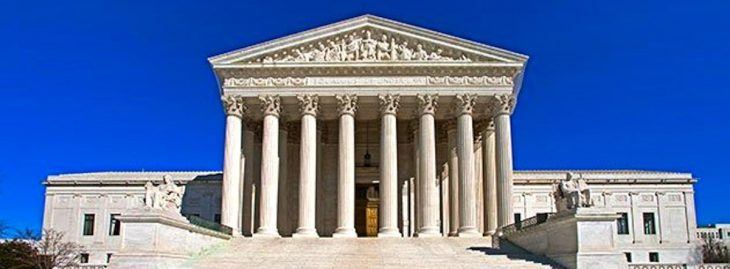UALR Law School deans: Scalia’s death leaves cautious Supreme Court
by October 3, 2016 8:47 pm 298 views

The death in February of Justice Antonin Scalia has left a divided Supreme Court that is cautiously focused on accepting cases where it believes it can make a decision.
That’s according to University of Arkansas at Little Rock William H. Bowen School of Law Dean Emeritus John DiPippa and Associate Dean Theresa Beiner. The two appeared at the Clinton School of Public Service Monday, the day the Court begins its term, which ends in late June.
DiPippa said the Court has complete discretion over what cases it hears, needing four justices to decide to hear the case. The Court only takes about 1% of the cases presented to it – 76 last year, with 63 cases decided not counting summary dispositions. He said the Court had unanimous agreement of some kind in 44% of the cases.
DiPippa said Scalia provided the intellectual foundation of originalism, the idea that the Constitution should be interpreted based on the intent of the framers of the Constitution. His death leaves the Supreme Court divided 4-4 between liberals and conservatives. President Obama has nominated Merrick Garland to fill the seat, but the Senate has not yet acted on the nomination. DiPippa said this will be the first election since 1864 there has been a vacancy that the Senate has not moved to fill.
Beiner said Donald Trump has offered the names of 11 potential appointees, most of whom have been given a thumbs-up by the conservative Heritage Foundation. She said Hillary Clinton has not named her potential nominees, but names being talked about include those that have already been vetted by Obama. The potential nominees would be similar to those from the Obama administration – “people who have obviously liberal or progressive leanings but are not radical in any sense of the word,” she said. Potentially the first Asian-American justice would be nominated.
Three justices are at retirement age: Justices Ruth Bader Ginsburg, Anthony Kennedy and Stephen Breyer.
Future decisions could change the way abortion cases are handled, though Roe v. Wade probably will not be overturned, DiPippa said. Cases related to affirmative action, the death penalty, election laws, executive power, guns and religion could be changed.
“Those are all areas where one vote could easily change the outcome. Two votes most definitely will. Three votes probably secures a particular line of precedent for an entire generation,” he said.
Two important cases to be decided this term involve race in the criminal justice system. One, Pena-Rodriguez v. Colorado, involves a juror who made racially biased statements. At issue is whether the privacy of jury deliberations trumps the right to an impartial jury. The other case, Buck v. Davis, involved an expert witness who said in the penalty phase that being African-American contributes to “future dangerousness.”
Other big issues in the upcoming term include:
• Cases involving racially based political redistricting in Kentucky and Virginia;
• Trinity Lutheran Church of Columbus v. Pauley, where Missouri has a program providing recycled tires for playgrounds and has a state law saying no funds can be spent on a private school. The decision could govern states’ ability to regulate the church-state barrier; and
• Lee v. Tam, which involves whether a trademark can be denied for a racially disparaging name. The case could determine if the Washington Redskins can trademark their name.
Cases that could be selected by the Supreme Court involve voter ID, transgender issues and requirements for businesses to serve same-sex weddings. On the last, a decision would apply only in states where public accommodation laws include sexual orientation, which doesn’t include Arkansas.
